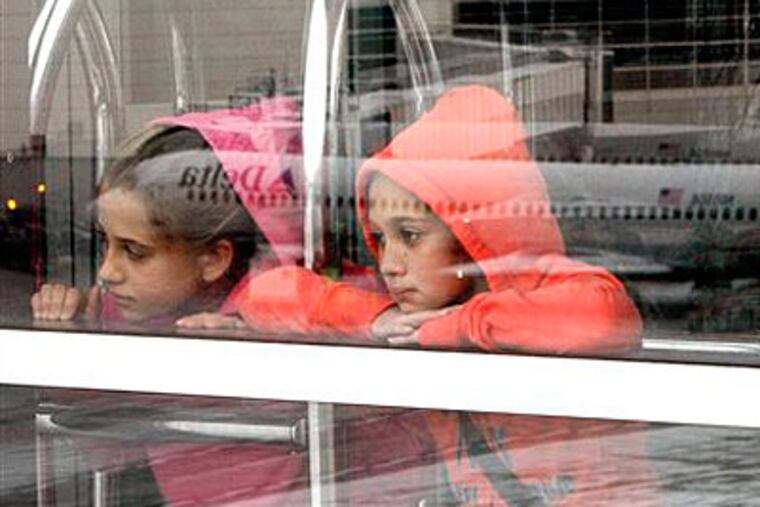Editorial: Didn't we learn?
Homeland Security Secretary Janet Napolitano understandably backtracked yesterday from her ridiculous comment that "the system worked" when a man nearly detonated a bomb aboard a U.S. commercial airliner.

Homeland Security Secretary Janet Napolitano understandably backtracked yesterday from her ridiculous comment that "the system worked" when a man nearly detonated a bomb aboard a U.S. commercial airliner.
The system did fail on Christmas Day, and Napolitano is now acknowledging that "no one is happy or satisfied with that." There are many questions that she and other U.S. national security officials must answer.
First of all, why can't security measures keep makeshift bombs off airliners, more than eight years after the 9/11 attacks? And why was Umar Farouk Abdulmutallab of Nigeria able to board the Amsterdam-to-Detroit flight with hidden explosives even though he was on a terrorist watch list?
The attempted mass murder was foiled because the high-explosive powder in the man's underpants didn't detonate. Instead it created a small fire, which burned the suspect. Other passengers helped extinguish the blaze and subdue the man until Northwest Flight 253 was able to land safely with the rest of the passengers and crew unharmed.
President Obama has ordered a review of government procedures for screening passengers and for tracking people suspected of links to terrorist organizations.
But the explosive purportedly used in this latest incident, PETN, is well known to security officials. It was also used by the so-called "shoe bomber," Richard Reid, when he tried to blow up an airliner in December 2001. Expensive, high-tech screening machines can detect the powder.
Rather than require all air travelers to jump through more security hoops, officials should examine gaps in their procedures for tracking people on watch lists.
Abdulmutallab's name was in a database of about 550,000 people who are considered potential terrorism suspects. Being on this list doesn't prohibit a person from flying; it doesn't even trigger mandatory additional airport screening.
He was on this list because his father alerted U.S. officials that Abdulmutallab had increasingly extremist religious views. That claim alone wasn't considered enough to target Abdulmutallab for extra scrutiny. But the father's statement wasn't the only information available to U.S. authorities. They also knew, or should have known, that the man was denied a visa in Great Britain in May. Officials there believed his stated reason for seeking to enter the country was bogus.
Further, he purchased the round-trip plane ticket from Lagos, Nigeria, to Detroit with $2,831 in cash. That's another red flag. And when he actually boarded the airline for this transatlantic voyage, he brought with him only a small carry-on bag - no checked luggage.
Adding up those factors should have qualified Abdulmutallab at least for heightened screening at airports overseas. The failure to do so suggests that various U.S. government security agencies, airlines, and U.S. allies still aren't communicating with each other as well as they should.
Better communication was a main recommendation of the 9/11 Commission, in a report now five years old. It shouldn't be ignored.